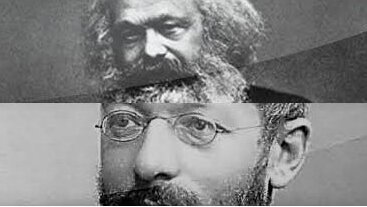
What is sociological theory? Sociology is the science of social conditions and impacts of human action on the one hand and of the structures, processes and developments of societal formations that condition this action on the other. General and Theoretical Sociology addresses the fundamental conditions of social action and societal development. How do social order and social change become possible? –This question is at the heart of all sociological theory. Since it only manifests as a problem in a modernity that no longer assumes the unquestioned validity of a preordained order, sociological theory in the narrower sense likewise arises in parallel to the advent of modernity in the late 19th century. So, it is always a response to the experience of modernization processes that render visible the temporal priority, entelechy und resistance of societal structures over against all individual and political wanting. In terms of teaching, then, ‘sociological theory’ first offers a study of the ‘classical’ versions of social theory by authors such as Karl Marx, Emile Durkheim, Max Weber and Georg Simmel, followed by more recent authors such as Jürgen Habermas, Niklas Luhmann and Michel Foucault. Another task of sociological theory, though, is the interpretation of current developments and changes in society (Zeitdiagnosen) and the critical identification of flawed social developments or social ‘pathologies’. In this connection, Sociological Research inquires as to how the practices, attitudes and predilections of social actors develop in relation to and dependence upon changing institutions and processes of societal structuration, including rationalization, differentiation and acceleration – and, vice versa, how institutions and structures are influenced by the activities of social actors.
Against this broad research background, three focal points can be distinguished, which also characterize sociology in Jena. General and theoretical sociology asks about the fundamental conditions of social action and social development.
How is social order possible? is the starting question of all sociological theory. Since this question only becomes a relevant problem in modernity, where we can no longer assume the unquestionable validity of a given order, sociological theory in the narrower sense also only emerges with the development of modernity in the late 19th century. Thus, it always already reacts to the experience of modernization processes, which make the pre-existence, autonomy and resistance of social structures visible in the face of every individual and political will. Thus ‘sociological theory’ means first of all the study of the ‘classical’ social theoretical projects of authors such as Karl Marx, Emile Durkheim, Max Weber or Georg Simmel, but also of more recent authors such as Jürgen Habermas, Niklas Luhmann or Michel Foucault. The interpretation of current social developments and changes in the form of ‘diagnoses of our time’ and the critical identifying of social misdevelopments in the sense of social ‘pathologies’ are also among the tasks of sociological theory.